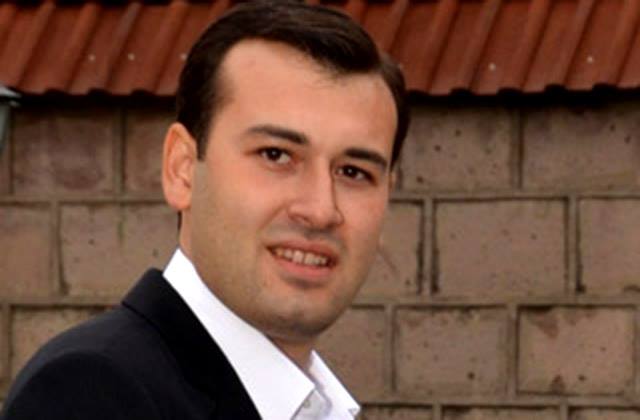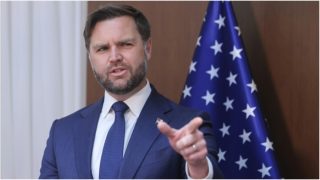“Main Hardship to Resist Russian Plans in Nagorno-Karabakh is Still Ahead”

Interview with Eduard Abrahamyan, expert on NATO strategy, intelligence, security and strategy researcher at the Leicester University (United Kingdom), fellow at Policy Forum Armenia, based in Washington, DC.
Mr.Abrahamyan, serious developments are ongoing around NK conflict after the unleashed four-day war. As usual Russia initiated active steps for the establishment of ceasefire. Preparations of meeting on presidential level by RF president have also been touched upon, although the initiative failed due to the efforts of the Armenian side, as RA president considered unreasonable resumption of negotiations. Presently, although the U.S. represented by John Kerry, keeps in touch with NK conflicting parties and with Russia, seemingly keeping Russia under control, there is an impression that leverages by the West aren’t sufficient to balance Russia’s influence in the conflict zone, which according to some analysts, is destructive, as it sells armaments to the conflicting parties, is against the change of the status quo, as well as has its own programs in the South Caucasus, which it tries to implement through “Russian settlement plan” or “Lavrov plan.” In your opinion, what’s going on in the settlement process, in particular, from the perspective of USA-Russia interest clash?
Firstly, let me clarify: formulation, that Russia is against the change of the status quo isn’t so right. Russia is for the change of the status quo. The latter wants the status quo to be changed in favor of its interests and under its umbrella, that’s why the so-called “Russian plan” or “Lavrov plan” was set forward, which already presupposes elimination of the status quo. Moreover, the essence of the resolution adopted in 1992 by OSCE on not supplying armaments to the conflicting parties, was provision of correlation of forces. Maintenance of this embargo, however, would complicate violation of the status quo, at least militarily, however, this didn’t occur. Russia—an OSCE MG Co-chair, has violated that embargo for years, calling it “business,” which was strangely repeated, and in fact, to some extent, justified by Armenia’s authorities. In other words, logic of steps, taken by Moscow both before the April events and immediately after them, has pursued the purpose of violating the status quo for its own interest, contrary to the interests of the West, i.e. by creating obstacles for the potential of Western influence strengthening.
By putting aside all the versions, who instigated Azerbaijan to sharply change the security environment around NK under this complicated geo-political condition, obviously, Russia should have been the main state obtaining main political dividends. On account of sharpening of the conflict with the West, Moscow’s active diplomatic engagement in suspension of the April four-day war and its following initiatives fit in the context of the conflict logic with the West.
In your opinion, what role does NK conflict have in the context of West-Russia competition in the South Caucasus?
To fully understand it, I guess, it’ll be proper to understand tendencies and dynamics of West-Russia conflict sharpening. The point is Russia, from annexation of the Crimea in 2014, has obviously adopted a policy, which in the West is qualified as “revisionist” and destructive, pursuing the goal to review the order existent from the moment of the cold war. This challenge by Vladimir Putin led to the counteraction, manifested by adoption of the policy of deterrence by NATO and strategy of isolation of Russia in the world arena by the USA. Despite Russia’s efforts to become Washington’s “irreplaceable” partner, including towards settlement of Syrian crisis, however, the USA didn’t review its policy towards Russia.
Just the contrary, throughout recent months commander of U.S. troops in Europe was changed, and the USA, adopting the program for providing the security of Europe, actively establishes military substructures to make deterrence strategy much safer and to provide security of NATO allies. Moreover, frequency of risks for accidents on warships, submarines and fighter aircrafts of Russia and NATO, deployment of new troops by both sides in the recent period, were hinting that Russia-West conflict has entered a more threatening and unpredictable phase. In this context, rising security of the territory of Baltic and Black Seas through extension of NATO’s military existence obtains crucial importance. And this means, that the South Caucasus, as a western part of the Black Sea territory, will have more importance for both parties, making it an arena for global conflict.
We shouldn’t forget, that the April war brought a new-quality tension and threat, from which—Russia’s more active engagement, which takes place just prior to NATO Summit in Warsaw. This serves as a ground, that the West more involved Georgia in its security orbit, seeking for grounds to provide American naval presence there. However, it’s less possible that Georgia will obtain the possibility to engage with the Treaty at Warsaw Summit, however, the fact, that NATO will more extend the Substantial Package for Georgia, obtained yet in 2014, is beyond suspicion. For this, Moscow will do its best to alienate the USA in OSCE MG, and particularly, to have an impact on Artsakh conflict.
It’s noteworthy to mention, that OSCE MG is the only political platform, where the USA and Russia, however, maybe already formally, are considered allies. Although, West-Russia conflict sharpening tendency is already felt within MG activities. In other words, the only mediating institution on settlement of Artsakh issue—OSCE MG, is being engaged in Russia-USA conflict. Thus, before the developments in April, proposal by the U.S. Co-chair on implementation of control mechanisms and systems for ceasefire violation on the Line of Contact, in fact, was rejected by Russia and Azerbaijan. Moreover, the developments in April and Russia’s separate mediation from MG provided the opportunity to revive the issue of deploying a peacekeeping mission, which made implementation of American program impossible.
Probably, for Moscow the point is not implementation of those mechanisms, but the issue, that the USA didn’t have any influence on Artsakh conflict. It’ll be possible only through control of tension and becoming an “irreplaceable” actor both for the conflicting parties and MG, which will agree on game rules by Moscow and its superior position.
Other possible variant of ousting already weakened influence of the USA may occur through deploying a peacekeeping mission, which, as RA president Serzh Sargsyan stated in an interview to Bloomberg, is possible, if any of the conflicting parties addresses to Russia with such a request. Probably, that scenario is yet available in Moscow, thus, it’s early to say, that the Armenian side cancelled “Lavrov plan.” I consider, difficulties in resisting Russian plans are still ahead.
RA president gave an interview to Bloomberg, then introduced three conditions, in case of which Armenia will enter into the negotiation process. On account of these three conditions and the interview, how do you assess disposition by the Armenian side?
Observations made during the interview, as well as the three conditions were correct, as it’s clear for everyone, that negotiations will bear simply formal meetings nature. Besides, the Azerbaijani side committed rude violations of Helsinki Act and Geneva Convention, moreover, servicemen, participating in inhumane activities and atrocities were encouraged and awarded by the country’s authorities. After all this negotiating, withdrawing from these three points, may be simply regarded as a defeat. Moreover, if observed from the viewpoint of classical politics, the side initiating aggression, hasn’t been punished, moreover, it prepares ground for new aggressive operations. Negotiating with that country in this case will mean giving it time for better preparation.
Which steps will Armenia undertake to avoid new wide-scale clashes on the Line of Contact?
The April war brought sharp change of game rules, created totally new situation, where there is no any factor or mechanism for deterrence. The legend, that the international community won’t allow resumption of conflict, has vanished. At the same time, wide-scale war is beneficial neither for the USA nor for Russia, which will lose the last fragile possibilities of controlling the conflict. However, if realistically observed, neither Azerbaijan, nor Armenia globally face any obstacle to shift war to a more active stage. Thus, the Armenian side should be quickly adapted to the new situation, by implementing systemic changes in Armenia, as after the April war, the developed status quo will hardly be beneficial to Armenia.
West-Russia competition made easier the possibility of settling political issues through war. This is a new situation, from which Azerbaijan attempts to possibly make use of, and Armenia also should initiate steps, which will deprive Azerbaijan of becoming a military-political threat for Armenia, Artsakh and Armenia’s citizen. Let’s be realistic, either Armenia will create a political history in the region by ousting the main competitor from the arena, or Azerbaijan. Likewise competitions don’t last long and end with regional, military and political success of one side, finally, not negotiating with the aggressor, at the same time recognizing Artsakh independent or as Armenia’s part, is a foreign policy as well. Armenia is in completely different conflict game rules and reality, which dictates Yerevan quite new activities, possible to implement under serious internal transformation and consolidation.
Dynamics of Armenian society mentality is observed, which excludes return to pre-war Armenian domestic policy reality. Thus, the only way to victoriously overcome the situation are systemic changes in all the fields—diplomacy, economy, domestic and foreign policies, geo-political orientation. However, it’s difficult to say, whether current authorities withdraw from the three conditions stated by the president and will be able to provide a new-quality basis for the activity of Armenian statehood institutions. One thing, however, is gradually becoming clear—new era for creation of new precedents in international relations has come. Author of one of such precedents may be new Armenia, which eliminates existent and potential threats for the sake of greater achievements for the future generation.
By Araks Martirosyan

























